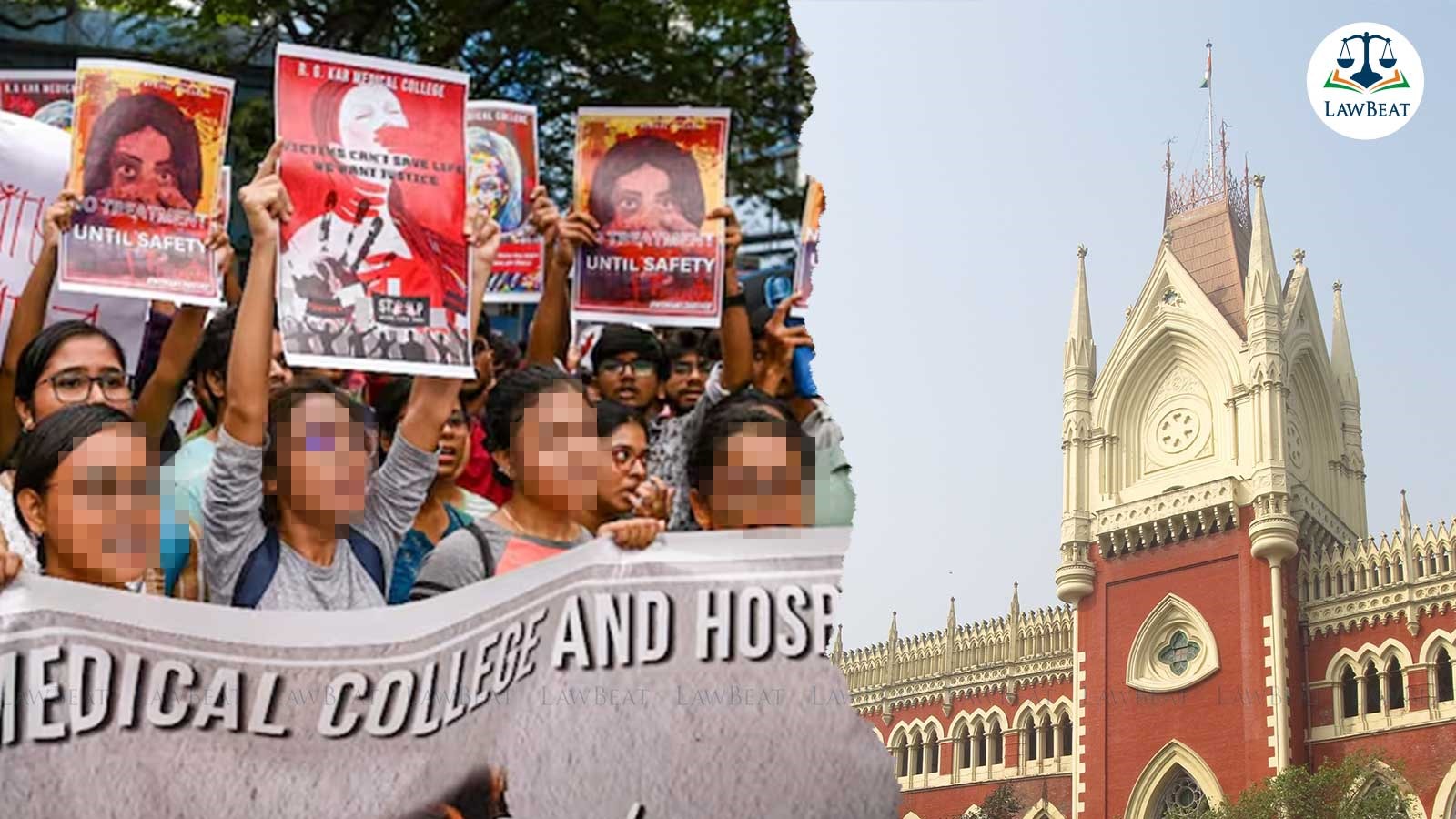Calcutta HC Upholds Junior Doctors’ Right to Protest Near Durga Puja Carnival Venue, Cancels Prohibitory Police Orders

The court ruled that the order was arbitrary and contradictory to the Rule of Law
The Calcutta High Court, upholding the right of junior doctors to protest against the unfortunate incident of rape of a junior doctor at the RG Kar Hospital in Kolkata, has set aside prohibitory orders issued by the Commissioner of Police, Kolkata, under Sections 163(1) and (3) of the Bharatiya Nagarik Suraksha Sanhita (BNSS), 2023.
A Single Judge bench of Justice Ravi Krishan Kapur, allowed junior doctors to conduct their "Droher Carnival" protest at Rani Rashmoni Road, near the venue of the State’s Durga Puja immersion carnival, rejecting the State's objections. The court observed, “The impugned order severely restricts and reflects an unfettered exercise of discretion which opens the doors to arbitrariness and is an antithesis to the Rule of Law. The width of prohibition contained in the impugned order is disproportionate, excessive and unreasonable. Such restrictions on fundamental rights cannot possibly achieve any bonafide purpose.”
The case stemmed from an order dated October 14, 2024, prohibiting the assembly of five or more persons to prevent any act likely to cause a breach of peace or public disturbance. This order, issued by the Commissioner of Police, was aimed at maintaining safety and order during the State's Durga Puja immersion carnival scheduled on the same day at Red Road, Kolkata.
The petitioners, represented by the Joint Platform of Doctors, had sought to hold a "Droher Carnival"—Doctors and Citizens Assembly—to protest the rape and murder of a postgraduate trainee doctor at R.G. Kar Medical College on August 9, 2024. Their request for permission, made on October 11, 2024, was denied by the police on October 13, citing concerns over safety and proximity to the ongoing State event. The petitioners, represented by Senior Advocate Bikash Ranjan Bhattacharyya, argued that the prohibitory order and refusal to grant permission violated their fundamental rights to freedom of speech and peaceful assembly, as enshrined under Articles 19(1)(a) and 19(1)(b) of the Constitution of India. It was contended that such a blanket ban cannot be necessary for maintaining law and order. Emphasising that the right to peaceful protest is a cornerstone of democracy, the petitioners argued that the authorities had no valid grounds to deny them the opportunity to express their grievances against the brutal incident involving their colleague.
Opposing the plea, the State, represented by Advocate General Mr. Kishore Dutta, argued that the petitioners' planned protest would coincide with the “Immersion Carnival,” an event that draws large crowds, and that any assembly near this venue posed a risk to public safety. The State suggested that the petitioners could choose an alternative date or venue for their protest to avoid any conflict. Citing precedents from Mazdoor Kisan Shakti Sangathan v. Union of India (2018) and Amit Sahni (Shaheen Bagh) v. Commissioner of Police (2020), the State claimed that while the right to protest is protected, it must be balanced with duties to maintain public order and peace.
The court, however, found no merit in the State's argument that the petitioners should reschedule the event to a different day, nor was the suggestion to change the venue acceptable. “It is true that there are wide powers granted to the State but the same does not justify either the impugned order or the refusal to grant a No Objection to conduct the “Droher Rally”,” the court further said.
Citing the Supreme Court's ruling in Anuradha Bhasin v. Union of India (2020), the court reiterated that “the power to exercise orders under Section 144 of the Cr.P.C. is to be exercised with care and caution and only as a measure to preserve law and order,” and any orders passed under this section must clearly outline the relevant facts and provide detailed reasons.
Furthermore, it was noted that the State proposed that the "Droher Carnival" be held at the Ram Leela Ground, a suggestion the petitioners rightly declined, according to the court. “There is a sufficient distance between the two venues and the fact that the State cannot maintain the law and order if two separate Carnivals are being conducted is bereft of any cogent or satisfactory reason. The width and draconian nature of the impugned order goes to the root of arbitrariness and makes it unsustainable,” the court held.
In conclusion, the court allowed the petitioners to proceed with the "Droher Carnival," with directions to the State to place barricades and guard rails between Rani Rashmoni Avenue and Red Road to prevent any disturbance. Additionally, the police were directed to deploy adequate personnel to ensure the event remained peaceful. The organizers were also advised to arrange sufficient volunteers to assist in maintaining order.
Cause Title: Joint Platform of Doctors & Ors. Vs. State of West Bengal & Ors. [W.P.A. 26117 of 2024]
